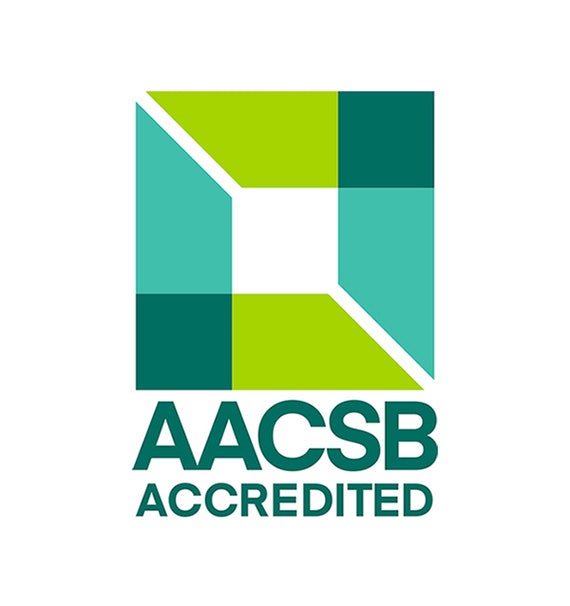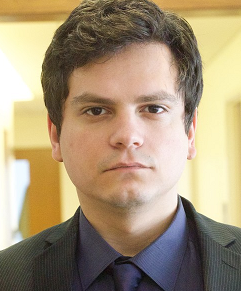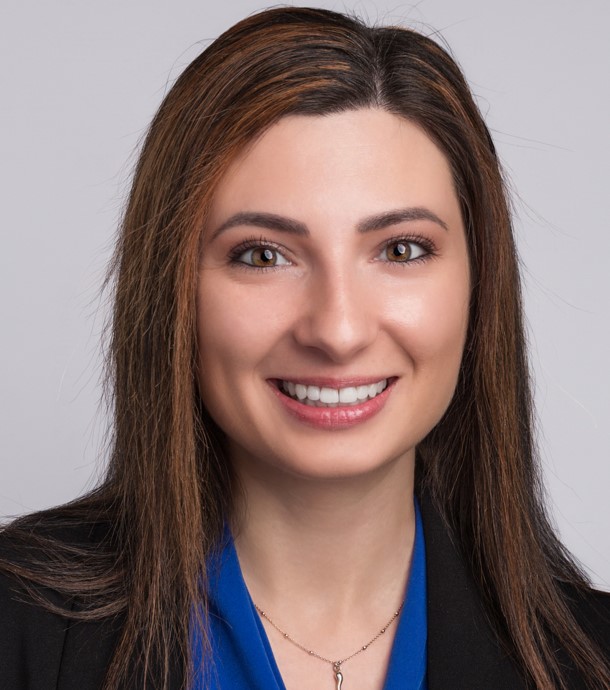Finance

The Finance program offers a Bachelor of Science in Finance.

Choose a major and a career in Finance. Finance offers exciting jobs, very attractive salaries, and endless opportunities. Students may major in Finance, for a well-rounded financial education or they may choose Financial Planning which concentrates on personal finance. Both programs provide the student with the necessary tools to understand the world of money and financial markets.
About

Michael Busler
Finance refers to the management of money, both in the corporate world and in personal finance. The finance major will explore topics like financial planning, banking and investing while developing valuable job skills in problem solving and communications. Students will take courses in Accounting, Marketing, Operations Management, Analytics, Law and Ethics.
Finance majors are interested in working with numbers, financial markets and finding ways to earn money. Students tend to be natural problem solvers who are goal oriented. Our program focuses on developing these very marketable skills.
The B.S. in Finance will provide students with the necessary tools to work with Stockbrokers, Private Equity firms, Investment firms, and on the Finance staff of Corporations to help them achieve their goals. The CFP majors will work with Personal Financial Planning firms to help clients build personal wealth.
Curriculum
The B.S. in Finance degree from Stockton University is a degree designed for the finance professional infused with broad-based liberal arts courses so that the student gets a well-rounded education. Finance majors will take a total of 80 credits focused on Finance and related business topics. Beyond the Business Core, which includes courses in Economics, Management, Statistics and Analytics, the student will take courses in Advanced Financial Management and Investments, and then choose from a number of varied electives. Students will examine financial risk, how insurance works and how to properly manage an investment portfolio. The capstone course, Strategic Financial Management teaches how the world of finance operates.
Students who choose the B.S. in Finance with a concentration in Financial Planning will take a total of 80 credits focused on Finance and other business topics. Included in that total are seven very specific courses that are required for the Certified Financial Planner exam. These courses focus on all aspects of personal finance, retirement planning and wealth building. Once the coursework is completed the student is qualified to take the CFP exam and enter the world of personal finance.
Highly qualified students may enroll in the accelerated dual degree program, which allows them to earn the B.S. degree in Finance and an M.B.A with a concentration in Finance or other business-related fields. This curriculum allows the student to obtain both degrees in as little as five years.
Finance Learning Outcomes
- Graduates will apply and synthesize concepts learned throughout the Finance Program to demonstrate a level of professional competency required of a new entrant into the Finance profession.
- Graduates will be able to perform fundamental business skills in management, finance,
accounting, marketing, and business analytics.
- Graduates will be able to apply current management and administrative practices and theories.
- Graduates will be able to manage the flow of funds within organizations.
- Graduates will be able to organize, record, and report business transactions.
- Graduates will be able to utilize the interrelationships between customers, products, and companies to guide effective decision making.
- Graduates will be able to apply theories and skills of statistical data analysis and management science to support decision-making processes.
- Graduates will be able to diagnose problems in various business situations, gather and analyze relevant information to understand the problems, and select and implement appropriate solutions, and evaluate outcomes.
- Graduates will be able to demonstrate ethical reasoning by recognizing moral dilemmas, analyzing their effects on stakeholders, and applying ethics theories to determine alternative solutions to those dilemmas.
- Graduates will be able to communicate effectively in a professional environment.
- Oral communication: Graduates will be able to deliver information in a persuasive, logical, and organized manner with a professional demeanor using appropriate visual aids.
- Written communication: Graduates will be able to create informational, analytical, and technical documents that are organized and concise, and incorporate credible sources.
- Graduates will be able to work effectively with various stakeholders in increasingly
diverse and global business environments.
- Graduates will be able to interact effectively with team members.
- Graduates will be able to contribute their expertise to collaborative projects.
- Graduates will be able to recognize and implement inclusive and equitable business practices in diverse business environments.
- Graduates will be able to use technology to support performance in varying business
situations.
- Graduates will be able to select and use appropriate technology to gather, analyze, and interpret data to solve business problems.
- Graduates will be able to adapt to emerging technologies.
- Graduates will be able to identify ethical issues related to the use of technology and data, including privacy and security.
Curriculum Information
Fall 2025 - Spring 2026
Fall 2024 - Spring 2025

Faculty

Michael Busler



Careers
Graduates with a B.S. in Finance from Stockton University can expect to work in the following occupations:

- Financial Analyst
- Financial Advisor
- Business Development
- Portfolio Manager
- Investment Banking
- Stockbroker
- Financial Planner
- Real Estate Broker
- Insurance Underwriter
- Budget Analyst
- Corporate Financial Management
The finance program gave me a strong foundation and a breadth of knowledge about the financial field. Along with learning the fundamentals of finance, in classes like Financial Management and Investments, I was also able to choose among various Finance course electives to diversify my learning experience, in classes like Financial Planning, Insurance, and International Business Finance. Many of my finance and business professors gave us valuable insight as they were able to relate what we were learning in the classroom to their decades of work experience within their specialty. All of my Finance classes had a capacity of 35 students which created a personal learning environment, and my professors always made themselves available after class or during their office hours. There are many opportunities to grow and learn more about the financial field inside and outside of the classroom by building connections with your professors and classmates, attending Stockton’s semi-annual career fair, and joining Stockton’s Accounting and Finance Society!

Spring 2023 Graduate
Finance
CFP Exam Preparation

Click Here for more information.
About the Instructors:
Brett Danko:

Brett’s not just a teacher, he is an active financial planner, just like you. He runs a successful Registered Investment Advisor, Main Street Financial Solutions, LLC, where he manages and advises his own clients.
Brett’s advice and feedback is rooted in real world, real time experience. Brett doesn’t just teach, he puts his words into action. He is also an independent financial planner, so he can provide timely, unbiased options and opinions.
A dynamic speaker and entertaining teacher, his insights and instruction will be your best preparation for taking the CFP Board Exam. If you already have your CFP certification, he provides the kind of real world support you need through his online Continuing Education and fosters your knowledge to help drive your business to the next level.
Not only is his instruction and feedback informative and noteworthy, Brett is also easily accessible to his students. By signing up for his classes or audio updates, you will have his cell phone number and his e-mail address, giving you the individual feedback you need to better your career and your business.
Brett's live courses include -
- Brett Danko as your personal instructor
- Course material updated for every cycle of the exam. This is not true for some competitors who print in bulk use the material over a series of exams.
- Pricing is inclusive of all materials. If you do need to retake the review course we charge you only our cost – no profit.
- For students who do not pass the CFP Board Exam, Brett personally follows up with a review of the results and an individualized strategy for next steps.
John Choi:
John Choi, MSFS, CFP® is the President of Epiphany Capital, a registered investment advisory firm based in the Chicagoland area. Since 1993, John has provided a team-based, solutions-oriented approach to wealth planning and investment management. The firm implements investment and insurance solutions for successful families, corporate executives, entrepreneurs, retirees, and specialized physicians.
John is a graduate of the University of Illinois at Urbana-Champaign and has earned his Master’s Degree in Financial Services (MSFS) from The American College and is also a CERTIFIED FINANCIAL PLANNER® professional. Additionally, he holds the professional designation of Certified Estate Planner (CEP®) from the National Institute for Estate Planners. John has authored several articles, including “A Brief Overview of Employee Stock Options”, “A Five-Step Approach to Repairing Your Portfolio”, and “Five Questions Every Investor Must Ask Their Advisor”.
John is active at his local church and volunteers in the children’s ministry. His leisure activities include golf, fishing, and coaching youth sports. He lives in Vernon Hills, Illinois with his wife and three children.
Matt J. Goren:
Matt J. Goren, PhD CFP® designs and delivers industry-leading financial planning education - at scale. His approach combines lessons from his own teaching experience with best practices in online education, artificial intelligence, and organizational psychology. He is an Investment News “40 under 40” and his courses and programs have won national awards from ThinkAdvisor, Investopedia, Yahoo! Finance, and the AFCPE.
Matt is the Chief Strategy Officer for the Brett Danko Education Center, which helps thousands of current and future financial planners pass the CFP exam. Collectively, those folks go on to provide financial advice and planning to millions of people.
Matt co-founded the Global Financial Planning Institute to promote competency in the cross-border financial planning space. In addition, he is a FinServ mentor and serves with the FPA and the AFS to advance financial planning education in higher education and to career changers around the world.
Previously, Matt ran Dalton Education as VP of Financial Planning Education at CeriFi from 2023 to 2025. From 2022 to 2023, Matt worked at CFP Board as Director of Knowledge for Practice. From 2018 to 2022, he worked in a series of roles at The American College of Financial Services, culminating as the director of their CFP® and ChFC programs. From 2016 to 2018, he was a professor of personal finance at the University of Georgia. And, from 2016 to 2020, he created and produced the lighthearted personal finance show Nothing Funny About Money on NPR. Before switching careers to financial planning, Matt ran the psychology research consulting firm Beyond Berkeley and taught psychology and statistics courses at UC Berkeley and the University of Georgia.
Matt has a Ph.D. in social psychology from UC Berkeley, an MS in social psychology from the University of Georgia, and a BS in psychology with minors in statistics and history from the University of Florida.
Additional Contacts:





